Africa
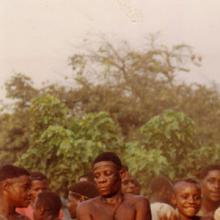
Analyzing Music
The modules in Methods present case studies that demonstrate how scholars interpret different kinds of historical evidence in world history.

Kuttab, or Primary Level Qur’an School
This public building of Mamluk Cairo in Egypt has two functions. Its lower level housed a sabil, or fountain, for dispensing water to thirsty travelers and denizens of the city, and its upper level was a public primary school for the teaching of Qur'an, called a kuttab.
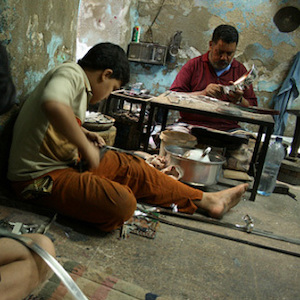
Child in Ramdan Lantern Family Workshop
In the weeks and months before the start of Ramadan, the ninth lunar month when Muslims fast, traditional workshops like the one on Ahmad Maher Street in the medieval quarter of Cairo, turn recycled tin cans into glittering lanterns.
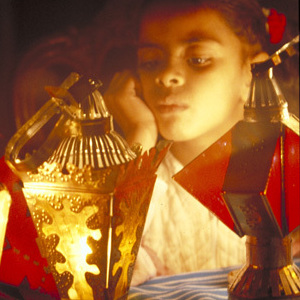
Egyptian Ramadan Lanterns
The photograph at the top shows two children gazing into the soft light of a fanoos [fan-NOOS], or traditional Ramadan lantern. In the photograph below, Ramadan lanterns are hung outside a shop in a section of medieval Cairo.
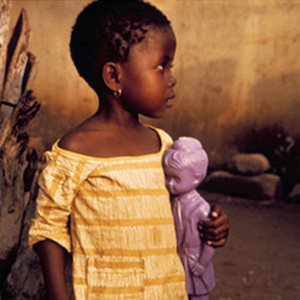
Child with Purple Plastic Doll near Kumasi, Ghana
The girl in the photograph is from the Asante peoples in Ghana. She is holding a purple plastic baby doll of a type that is frequently found in markets in Ghana. The doll is both imported from Taiwan and made domestically in Ghana.
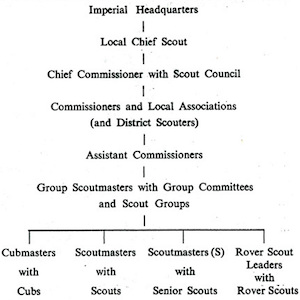
Organization of British Imperial Scouting
This chart shows the official lines of authority in the imperial Boy Scout movement. In theory, the Imperial Scout Headquarters had direct control over local versions of scouting through its territorial associations.

Pathfinder Warrant
Imperial scout headquarters and the national and territorial scout associations were deeply concerned with ensuring that only respectable and responsible men became scoutmasters.

The Scout's and King's African Rifles Uniforms
The top photograph shows members of a South African scout troop specifically for blind adolescents and young men c.1950. The bottom photograph is of non-commissioned officers from the King's African Rifles in the mid-1950s.

Mau Mau Fighters in Scout Uniforms
In the early 1950s, tens of thousands of poor and landless Kikuyus revolted against the Kenyan colonial government and wealthy members of their own community who were allied with the British regime.

Captured Africans Liberated from a Slaving Vessel
The Graphic, a London periodical owned by liberal reformer William Luson Thomas, was not an abolitionist publication per se, but it did seek to inspire action against those causes that Thomas felt demanded immediate attention, such as poverty, crime, and slavery.